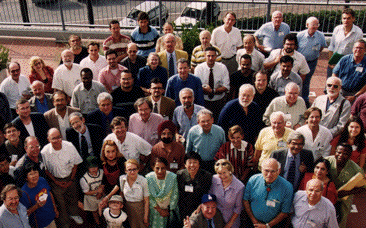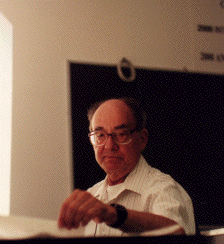

Stanley Miller was only a second year graduate student at the University of Chicago, when he published a remarkable paper in 1953 on the synthesis of amino acids in prebiotic conditions. It was a simple experiment that attempted to reproduce conditions similar to those in the early Earth, when life first originated. He was under the guidance of Harold Urey, who had done fundamental research in nuclear physics. Urey was responsible for the discovery of an isotope of hydrogen: deuterium and received the Nobel Prize for this work. Urey had subsequently suggested that the early Earth had conditions favorable for the formation of organic compounds.
As a subject of his doctoral thesis Miller demonstrated experimentally that amino acids, the building blocks of the proteins, could be formed without the intervention of man in environmental conditions, which we have called prebiotic - similar to those that presumably were reigning at the earliest stages in the evolution of the Earth itself. The corresponding geologic period is referred to as the Archean. Miller's work was an important step in the growth of the subject of chemical evolution.
Throughout his long and productive career Miller has continued to inspire younger generations with his research on a wide spectrum of topics on chemical evolution.
